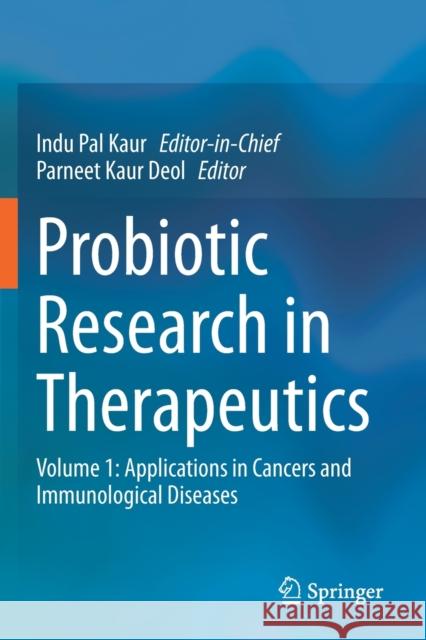Probiotic Research in Therapeutics: Volume 1: Applications in Cancers and Immunological Diseases » książka
topmenu
Probiotic Research in Therapeutics: Volume 1: Applications in Cancers and Immunological Diseases
ISBN-13: 9789811582165 / Angielski / Miękka / 2021 / 384 str.
Probiotic Research in Therapeutics: Volume 1: Applications in Cancers and Immunological Diseases
ISBN-13: 9789811582165 / Angielski / Miękka / 2021 / 384 str.
cena 402,53
(netto: 383,36 VAT: 5%)
Najniższa cena z 30 dni: 385,52
(netto: 383,36 VAT: 5%)
Najniższa cena z 30 dni: 385,52
Termin realizacji zamówienia:
ok. 16-18 dni roboczych.
ok. 16-18 dni roboczych.
Darmowa dostawa!
The volume sheds new light on role of gut dysbiosis in cancer and immunological diseases and their clinical manifestations. Contributions in the volume discuss about the gut microbiota as a therapeutic target and the role of probiotics in its management. The volume explores application of probiotics in the treatment of various cancers viz. colorectal, gastric, lung, and breast cancer and immunological diseases.
The volume comprises of chapters from expert contributors organized into various important themes which include, introduction, relationship between gut microbiota and disease condition, mechanisms involved, clinical and in vivo status, conclusion and future directions. This is a highly informative and carefully presented book, providing recent and innovative insight for scholars and researchers with an interest in probiotics and its applications in cancer and immunological diseases.











